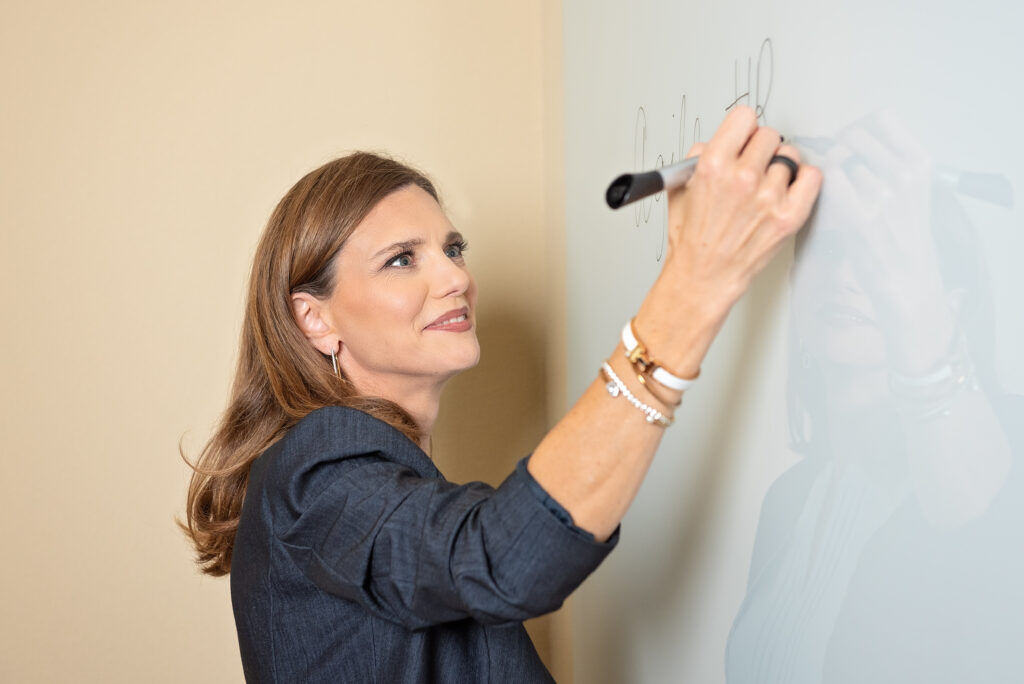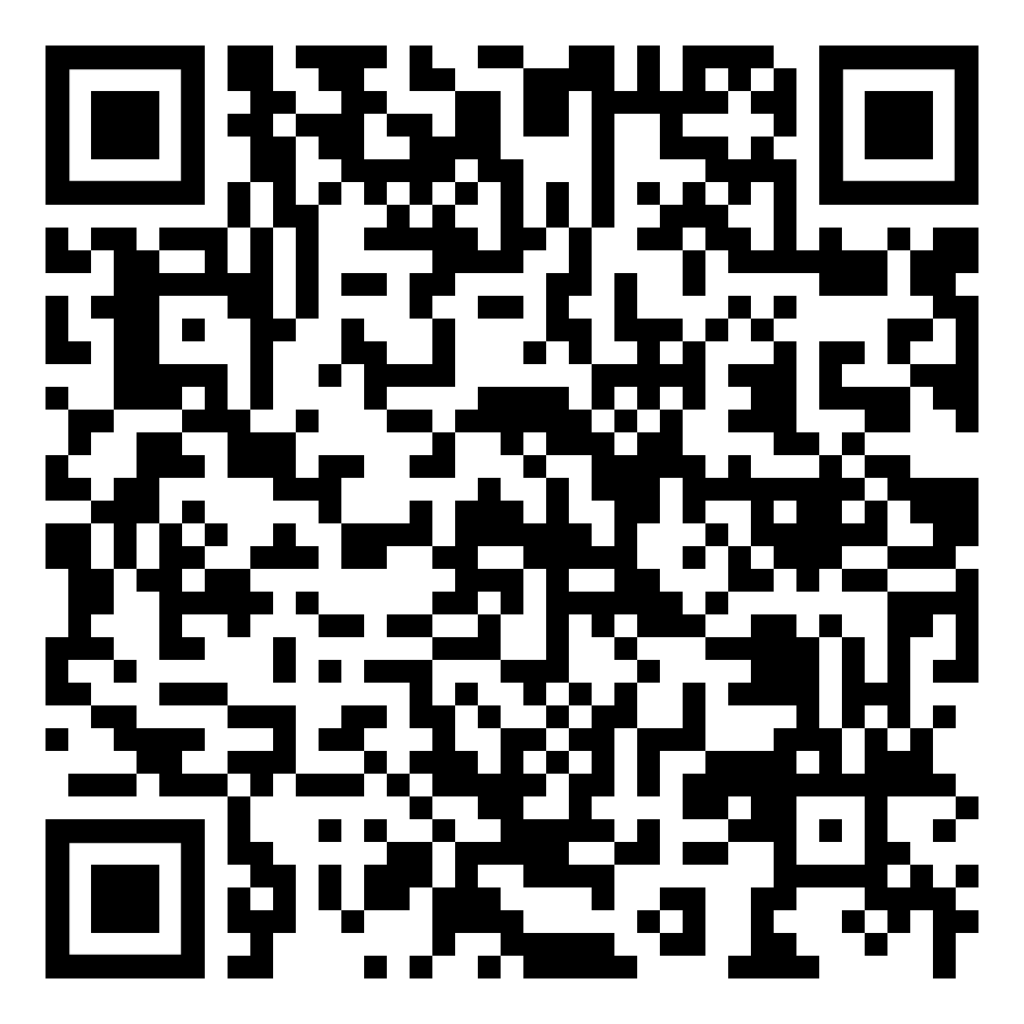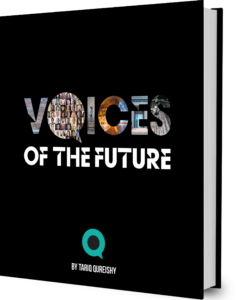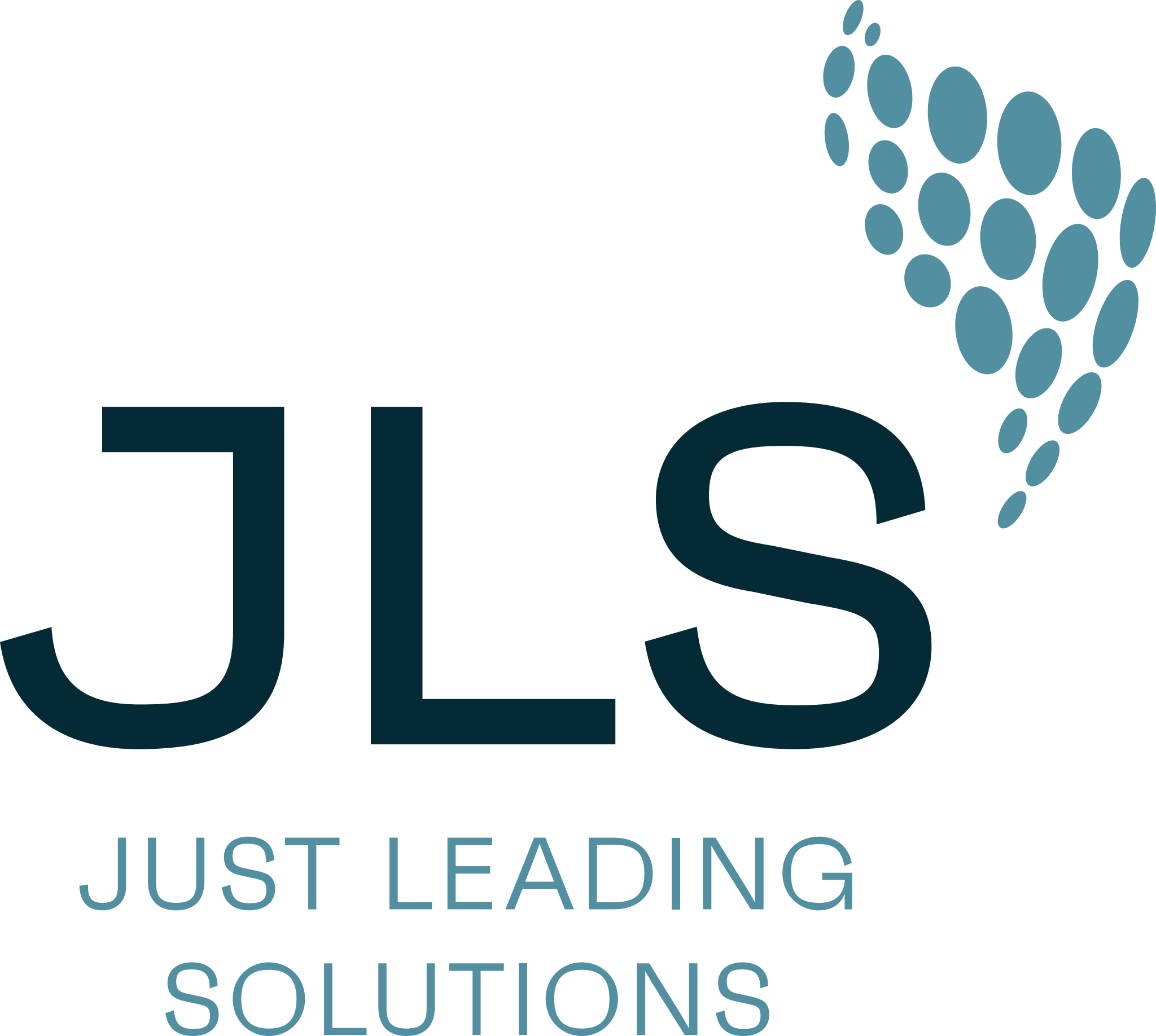In my conversation with Fabiola Eyholzer, co-founder and CEO of Just Leading Solutions, I was struck by her remarkable insights and profound understanding of human resources in today’s fastevolving corporate landscape.
Fabiola, who hails from a picturesque Swiss mountain town, brings a unique blend of analytical acumen and deep empathy to her role, shaped by her family’s influence. Her father’s logical approach to life, combined with her mother’s empathetic nature and her grandfather’s wisdom to appreciate life and people, have been instrumental in her development as a leader. This unique combination of reason and heart has transformed her into a pivotal figure in the realm of human-centric organizations.
Empathy and analytics are two words close to my heart. I would call analytics the left side of the brain, and the right side is empathy and emotion. I asked Fabiola what she learned from both sides and how she applies that to her work. Her response is illuminating: “I always look for connections with people – and I look for the positive things we have in common to build those connections,” she asserts.
Fabiola recounts her ‘aha’ moment of her transformational shift in mindset: “When I first held leadership responsibility, I didn’t pay enough attention to empathy; it was a time when the corporate world put all its focus on profits and KPIs. I was a very good leader for self-driven, determined, and independent people. But, I wasn’t a good leader for those needing more support and guidance. That’s when I learned about the agile ways of doing things, of connecting deeper with people. It was an eye-opener. It became a way for me to get more in touch with the empathetic side, getting to know people, meeting them where they are, and helping them along their journey made me a better leader.”

“Building human-centric businesses takes leadership and commitment.”
Today’s leadership roles are even more complex: leaders need to be not only empathetic and analytical leaders but also technologists, futurists, and stewards of the planet, to name but a few. The world is shifting to resilience and adaptability, and agility is what moves the needle. Fabiola strongly believes in the adaptability of organizations, asserting: “Survival means adaptability – that’s where resilience and strength come from. We sometimes think that strength comes from the stability of hierarchical organizational structures, which was true when organizations were run as machines. But today, organizations need to be adaptive ecosystems to continue to thrive and survive in that fast-paced environment.”
How does an organization achieve that? J.R. Commons first used the term ‘human resources’ in 1893 – Fabiola believes the underlying theories of HR are still stuck in that era. She emphasizes the need for HR to evolve from its traditional role: “It’s all about humanizing work; competence in technical skills is becoming a commodity. What is left is truly the question of what humans bring to the table. That’s our passion, imagination, and potential for social and emotional intelligence.” She believes that the future of successful organizations transcends their structural robustness or technological advancements; it’s rooted in their adaptability, learning capacity, and agility — attributes that are quintessentially human.
Her vision of HR, or as she prefers to call it, ‘People and Culture,’ is revolutionary. She advocates for a future where HR’s role evolves from managing people – a 20th-century mindset – to creating environments where individuals can be their best selves. This shift from a resource-focused approach to a human-centric model is at the heart of her philosophy. It’s about recognizing people as essential components of an organization’s ecosystem, not just as cogs in a machine.

Trust, truth, and ethics will define our future; today, a massive trust deficit exists. How do we bring trust back into organizations, institutions, and people? Fabiola is adamant: “It is all about culture.” Part of that culture is trust. “How do we build trust? By truly caring about people,” she elucidates, “The word culture comes from the Latin word ‘cultus,’ meaning care: we need to start connecting with people.” That means redefining the ways we view organizations, how we work, and connect with people. “That’s where the new thinking around HR comes in, which builds trust, cares for people, and creates a new human-centric way of working,” she proclaims.
Fabiola’s perspective about AI tools revolutionizing every industry and the challenges they pose for humanity is refreshing. She declares: “There will be businesses run by technology, and others will be people-driven. Organizations in the future won’t have a stable hierarchical structure; they’ll be living, breathing organisms. We’ll have a very different definition of what work is and and how people contribute and create value.”
How does an agile HR approach face these future challenges? “The answer is three words: learning, learning, learning,” she affirms. “Survival is adaptability, which means learning: we’ll need to learn and unlearn things quickly. In the future, an environment conducive to learning will be essential, where change is not a threat but embraced as an opportunity. It starts with learning: If we want different ways of connecting with people, we need to give them the life skills needed to thrive in the future world; the ones needed in the past are no longer what will get us into the future.”
As for the future, Fabiola focuses on inspiring and building human-centric organizations by redesigning the entire HR value chain. Her message is one of authenticity and connection: “Be authentic and connect with others. Show empathy, care for others, and build those strong connections.” This emphasis on genuine human interaction over digital connectivity highlights her belief in the power of human relationships in shaping the future of work. And we need our HR structure and processes to support a human-centric leadership approach.
Fabiola Eyholzer is not just redefining HR; she is redefining the essence of work, culture, and organizational belonging, paving the way for a future where businesses thrive because they truly value people as their greatest asset.















